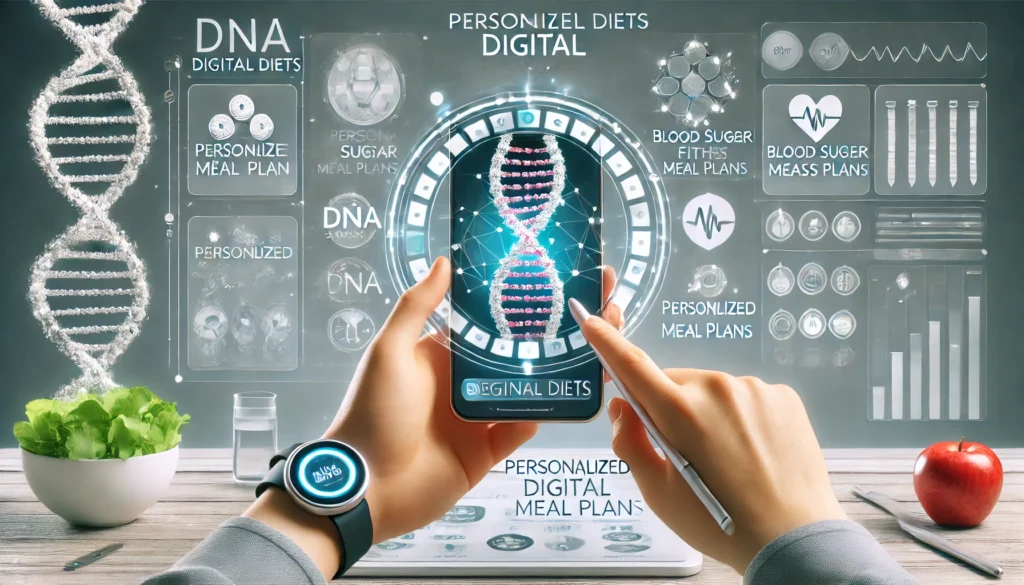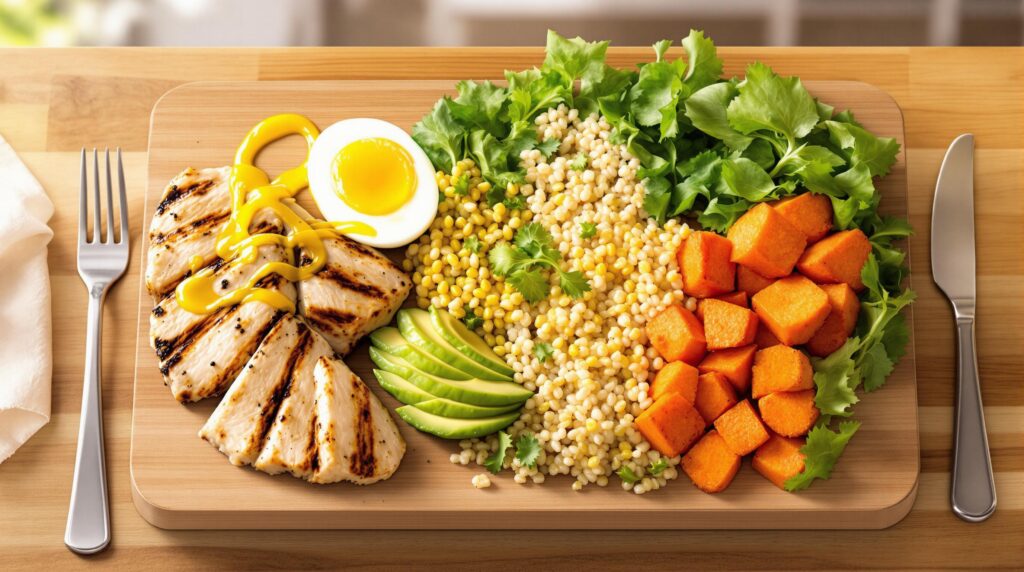Losing weight has never been a one-size-fits-all journey—and in 2025, the options are more diverse and data-driven than ever. With so many diets claiming to be “the best,” it’s easy to feel overwhelmed, unsure which one is right for your body, lifestyle, and goals. Whether you’re aiming to drop pounds, improve your health, or build sustainable habits, choosing the right diet can be the difference between lasting results and another short-term fix.
This article breaks down the top 5 diets for weight loss in 2025, offering a clear, honest look at what actually works. Backed by current trends, expert insight, and real-world practicality, each plan is designed to help you make smarter, healthier choices. From plant-forward eating to tech-driven personalization, we’ll guide you through what’s new, what’s proven, and what might be your best next step.
Let’s take the guesswork out of weight loss.
1. Mediterranean Diet

What It Is and Why It’s Still a Top Choice in 2025
The Mediterranean Diet has been around for decades, but it continues to be one of the most recommended weight loss plans by doctors and dietitians in 2025. Rooted in the traditional eating habits of countries like Greece, Italy, and Spain, this diet focuses on whole, nutrient-dense foods: vegetables, fruits, whole grains, lean proteins, and healthy fats—especially olive oil.
Among the top 5 diets for weight loss in 2025, the Mediterranean Diet continues to stand out for its heart-healthy benefits and flexibility.
Unlike restrictive fad diets, the Mediterranean approach is about balance, not elimination. It’s more of a lifestyle shift than a short-term fix, which is why it’s so sustainable. In a culture where fast food and ultra-processed snacks are everywhere, the Mediterranean Diet offers a refreshing reset. Learn more from Mayo Clinic
How It Works
- Encourages natural, unprocessed foods
- Replaces butter with olive oil
- Promotes fish and poultry over red meat
- Reduces added sugars and refined carbs
- Includes red wine in moderation (optional)
By focusing on quality over quantity, this diet naturally reduces calorie intake without strict calorie counting. People often report increased energy, better digestion, and long-term weight loss results.
Who It’s For
This diet is ideal for:
- People who don’t want to give up carbs completely
- Anyone looking for a heart-healthy lifestyle
- Those who prefer flexible, enjoyable eating habits
- Families—it’s easy to cook Mediterranean-style meals for everyone
Tips to Make It Work in Everyday Life
- Meal prep: Cook large batches of grilled veggies, brown rice, and lean proteins for easy meals.
- Smart swaps: Use hummus instead of ranch, whole wheat pita instead of white bread.
- Go local: Choose fresh produce at your local farmers market.
- Simple breakfasts: Greek yogurt with berries and a drizzle of honey = perfect start.
- Dinner idea: Grilled salmon with quinoa and a tomato-cucumber salad.
2. Intermittent Fasting (IF)

Why It’s Trending in 2025
Intermittent fasting isn’t just a passing trend—it’s become a popular and science-backed strategy for weight loss and metabolic health. In 2025, it’s still gaining momentum thanks to new research, apps that simplify tracking, and its flexible, no-food-restriction approach. Instead of focusing on what you eat, IF focuses on when you eat.
Each of these top 5 diets for weight loss in 2025 brings something different to the table—whether it’s flexibility, personalization, or a focus on whole foods.
The most common methods include the 16:8 (16 hours fasting, 8 hours eating window), 5:2 (normal eating 5 days, limited intake on 2 days), and alternate-day fasting. Many Americans like it because it fits around busy schedules, doesn’t require special foods, and often leads to natural calorie reduction without the stress of dieting.
Johns Hopkins Medicine on Intermittent Fasting
How It Works
- Limits eating to specific hours or days
- Helps regulate insulin and blood sugar levels
- Boosts fat burning by extending the body’s fasting state
- Reduces mindless snacking and late-night eating
- May improve sleep and focus for some people
IF encourages your body to switch from burning glucose to burning stored fat for energy—a process known as metabolic switching.
Who It’s For
This plan is a good fit for:
- People with unpredictable schedules
- Those who don’t want to count calories
- Individuals who struggle with portion control
- People looking for a more natural, habit-based approach to eating
Note: IF is not recommended for people with a history of eating disorders, pregnant women, or individuals with certain health conditions—always consult a healthcare provider first.
Tips to Succeed with IF
- Start gradually: Begin with 12-hour fasts and build up to 16:8
- Stay hydrated: Water, black coffee, and tea are allowed during fasts
- Eat balanced meals: Don’t binge during eating windows—stick to protein, fiber, and healthy fats
- Use an app: Tools like Zero or FastHabit help track your schedule
- Avoid extremes: Consistency matters more than fasting longer
3. High-Protein, Low-Carb Diet (Not Keto)

A Balanced Take on Low-Carb Eating in 2025
Keto may have opened the door to low-carb diets, but in 2025, many people are shifting toward a more moderate, high-protein, low-carb approach that skips the extremes. This version keeps carbs low but not zero, and it emphasizes lean protein and whole foods over heavy fats and processed “keto snacks.”
It’s one of the top 5 diets for weight loss in 2025 because it supports muscle definition, fat loss, and stable blood sugar without heavy restrictions. NIH on Protein and Weight Management
How It Works
- Reduces simple carbs (white bread, pasta, sugar)
- Increases protein intake: chicken, fish, eggs, legumes, tofu
- Encourages healthy fats: avocado, nuts, seeds, olive oil
- Supports steady energy levels and appetite control
- Builds and preserves muscle mass while losing fat
This type of diet is easier to sustain long term because it doesn’t fully eliminate carbs, just focuses on better ones—like vegetables, quinoa, and oats.
Who It’s For
Great for:
- People trying to lose fat and gain muscle
- Those who feel tired or bloated after eating high-carb meals
- Gym-goers, athletes, or anyone with an active lifestyle
- People who didn’t feel great on strict keto
Tips to Make It Work
- Balance each meal: Aim for 40% protein, 30% carbs, 30% fats
- Watch for “hidden carbs” in sauces, drinks, and snacks
- Plan your snacks: Hard-boiled eggs, Greek yogurt, turkey jerky, edamame
- Don’t fear carbs: Choose smart carbs like sweet potatoes and berries
- Track your progress: Use apps like MyFitnessPal to fine-tune your macros
4. Plant-Based Flexitarian Diet

Flexible, Sustainable, and Health-First Eating in 2025
The Flexitarian Diet combines the best of both worlds: plant-based nutrition with the flexibility to enjoy meat and animal products occasionally. In 2025, it’s gaining popularity not just for weight loss, but for people looking to eat healthier, reduce their environmental footprint, and feel more energized—without giving up their favorite foods.
It earns a spot among the top 5 diets for weight loss in 2025 because it’s practical, sustainable, and family-friendly. Harvard Health on Healthy Eating Plate
How It Works
- Focuses on mostly plant-based meals
- Meat is optional, not forbidden
- Encourages home cooking and less processed food
- Naturally lower in calories and saturated fat
- High in fiber, antioxidants, and nutrients
Because it’s more about addition than restriction, people find it easier to maintain, and it often leads to slow, steady weight loss and improved overall health.
Who It’s For
Perfect for:
- People transitioning to a plant-based diet
- Those who want to lose weight without giving up meat
- Anyone looking for a sustainable, heart-friendly eating style
- Families or couples with mixed dietary preferences
Tips to Get Started
- Meatless Mondays: Pick one or two days a week to go fully plant-based
- Build your plate: Half veggies, a quarter whole grains, a quarter protein
- Swap smart: Try black beans instead of ground beef, almond milk instead of whole milk
- Make it tasty: Use spices, herbs, and sauces to keep meals exciting
- Batch cook: Prep lentils, brown rice, and roasted veggies for easy weekday meals
5. Personalized Digital Diet Plans (DNA & App-Based)

The Future of Weight Loss is Personalized in 2025
In 2025, one of the fastest-growing trends in weight loss is customized digital diet plans—tailored to your DNA, metabolism, lifestyle, and even gut microbiome. These plans are powered by AI-driven apps, home testing kits, and wearable devices that track your body’s response to food in real time.
It’s clear why these tech-based approaches are now part of the top 5 diets for weight loss in 2025—they offer precision, data, and personalization.
Companies like Noom, ZOE, and InsideTracker have made it easier than ever to access science-based, individualized guidance, moving away from generic advice. These plans tell you not just what to eat, but why, based on your own biology. Learn more from ZOE
How It Works
- Users complete blood, saliva, or microbiome tests
- Data is analyzed to identify optimal foods for weight loss and health
- AI-powered apps create dynamic diet plans, updated with your progress
- Tracks glucose response, sleep, activity, and even mood
- Offers daily coaching, habit tracking, and meal suggestions
This hyper-personalized approach can lead to faster and more sustainable weight loss because it eliminates guesswork and focuses on what works for you.
Who It’s For
Best suited for:
- People who’ve tried everything and need something personalized
- Tech-savvy individuals who enjoy using apps and trackers
- Those with specific health concerns like PCOS, insulin resistance, or food intolerances
- Busy professionals who want efficient, data-driven results
Tips to Maximize Results
- Choose a reputable platform with clinical backing and real user reviews
- Be consistent with tracking and updates—more data = better results
- Set clear goals (weight loss, gut health, energy) before starting
- Stay realistic: Personalized doesn’t mean instant—it’s still about long-term change
- Pair with lifestyle changes: Sleep, stress management, and movement matter too
Conclusion: Which Diet Is Right for You?
If you’re still deciding which of the top 5 diets for weight loss in 2025 suits your lifestyle, remember: sustainability matters more than speed.
Whether you’re drawn to the heart-healthy Mediterranean Diet, the time-based rhythm of Intermittent Fasting, the muscle-supporting benefits of a high-protein plan, the plant-first flexibility of the Flexitarian lifestyle, or the hyper-personalized insights from digital diet platforms, the key is to choose something sustainable.
The best diet is one you can stick with—not just for a few weeks, but for life. Focus on habits over hacks, and aim for progress, not perfection. Weight loss isn’t just about numbers on a scale—it’s about energy, health, and confidence in your daily choices.
Which of these diets fits your lifestyle best? Let us know in the comments. And if you’re ready to take the next step, subscribe to our newsletter for more tips, meal ideas, and real-world wellness advice.




Pingback: What the Best Diet Plans for Weight Loss Reveal About Hidden Nutrition Myths
Pingback: 7-Day Healthy Meal Plans for Weight Loss That Prove Fast Results Are Possible